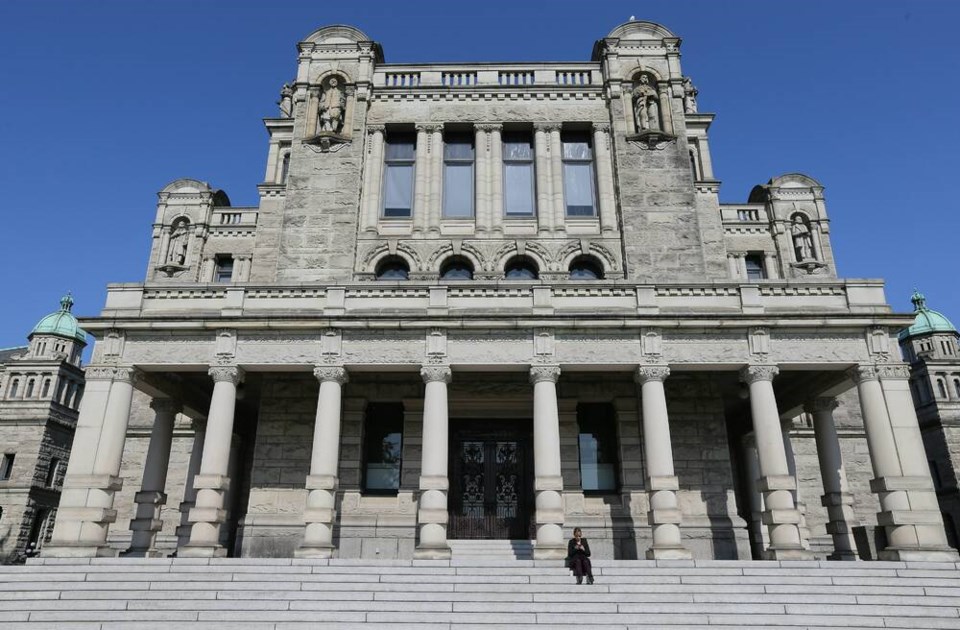Premier David Eby said last month that he was very troubled about allegations that the Chinese government interfered in the Â鶹´«Ã½Ó³»civic election and he has requested a briefing from the Canadian Security Intelligence Service about the issue.
But at the same time, his government has introduced an Election Act amendment which ignores a recommendation from Chief Electoral Officer Anton Boegman to crack down on any potential for foreign interference.
The amendment instead concentrates on combating election disinformation by tackling false statements and misrepresentations and requiring online platforms to remove offending advertising when asked.
Elections B.C. recommended changes to tackle both the disinformation and foreign interference issues, among others. Opposition critics are questioning why the NDP government addressed only one problem in the bill, not both.
Boegman regularly submits reports on how to improve the Election Act and in 2020 his top two recommendations were to act on disinformation, and to “discourage foreign and out-of-province interference.”
Foreign donations are banned and interest groups promoting political views must register and are regulated. But foreign interests “must only provide a B.C. mailing address, which can be a post office box,” Boegman said.
“These requirements may allow foreign and out-of-province entities to indirectly or anonymously fund third-party advertising.”
He urged residency requirements for all such groups and also suggested ad sponsors be required to pay in Canadians funds using only accounts with Canadian banks.
The amendment introduced March 7, however, is mute on those ideas. Instead, it focuses on disinformation and bars the transmission of false statements about candidates, elections officials or the voting process.
Subsequently, there was a report in the Globe and Mail that Chinese consulate officials in Â鶹´«Ã½Ó³»meddled in the civic election by using community groups and grooming certain candidates.
Eby said at the time that people deserve a thorough and independent investigation of the allegation, which was based on a confidential CSIS report.
Attorney General Niki Sharma said the amendment is a matter of prioritization and the administrative and operational decisions about what can be achieved in time for the next scheduled election in 2024.
“It’s a more complicated decision-making process than yes or no for each of the recommendations in the report, but we’re always in conversation about what can be changed and fixed up over time.”
The thrust of the amendment is that “an individual or organization must not, with the intention of affecting the result of an election, transmit by any means a statement knowing that it is false, or having a reckless disregard as to whether it is false.”
She called it a “strong response to make sure any actor that tries to interfere with our elections, whether they’re local or foreign, are going to face restrictions and barriers.”
Liberal critic Mike de Jong said that suggests that as long as a foreign actor isn’t spreading disinformation “their attempt to influence the outcome of an election is fine.”
Sharma said only de Jong could think that.
It’s not clear whether the Elections B.C. recommendations would combat what is alleged to have occurred in last fall’s Â鶹´«Ã½Ó³»civic election.
Boegman had recommended in 2020 that the disinformation and foreign interference curbs be applied to civic elections as well, but that has not happened.
Sharma noted that Elections B.C. acknowledges there has been no evidence to date of any foreign interference in a B.C. election.
But de Jong said the legislature itself recently experienced “something akin” to foreign interference. The Â鶹´«Ã½Ó³»Sun revealed that the Chinese consulate had objected to Tibetan visitors being recognized at the legislature, which created a protocol disagreement.
Electoral officers around the world have been warning about the strong potential for foreign meddling, citing the confirmation that Russians meddled in the 2016 U.S. election to Donald Trump’s advantage.
B.C. Liberal MLA Michael Lee said the pace of the threat and change globally is very rapid and “it would be surprising that B.C. elections are not subject to the same level of risk.”
He said the NDP is making one change but not using the counterpart recommendation, despite the fact it’s been three years since it was produced.
>>> To comment on this article, write a letter to the editor: [email protected]



